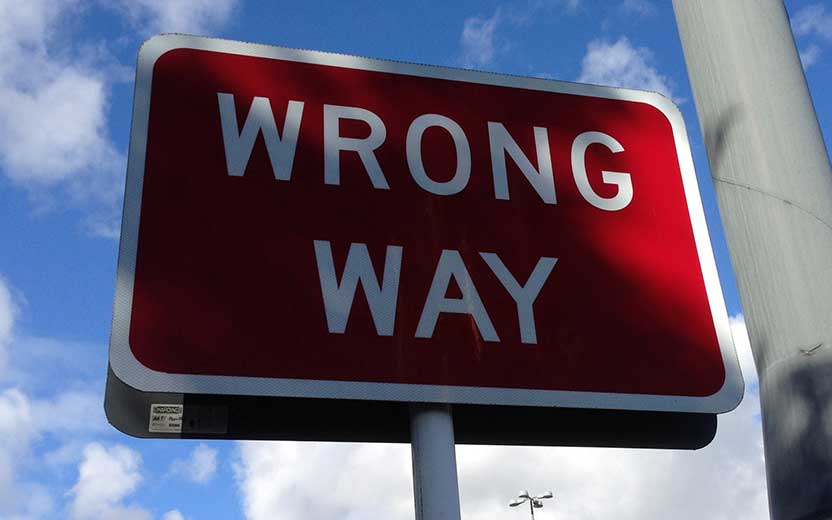By Marcus Fernandez
Car accidents don’t happen by chance. In fact, data compiled by the federal government shows the cause of 98% of motor vehicle crashes to be driver error. If someone is at fault in causing a crash, what are no-fault auto insurance laws in 12 states, including Florida, all about?
The answer is that no-fault laws allow someone injured in an accident to recover the cost of medical treatment and lost wages by filing a claim against their own insurance company. Someone is still at fault in causing a crash, but no-fault is a faster way to get compensation into the hands of someone injured in a car accident.
Florida no-fault law sets limits on compensation and restricts the right of an injured person to recover for pain and suffering, except under certain circumstances. What follows is a look at how no-fault works in Florida, including an explanation of the circumstances under which you can sue an at-fault driver to recover damages beyond what is available through no-fault.
No-fault insurance in Florida
If a car driven by an intoxicated or distracted driver crashes into you in a state that does not have a no-fault insurance law, the only way to recover compensation for medical bills, lost earnings, and other damages is to file a lawsuit. Your personal injury attorney would probably file a lawsuit and have to produce evidence to prove to a judge or a panel of jurors that the accident and your injuries were caused by the negligent and careless behavior of the other driver.
Personal injury lawsuits can take years to settle or go to trial, so 12 states adopted no-fault laws to change the way compensation is handled when someone is injured in an automobile accident. No-fault in Florida is “personal injury protection” or “PIP” insurance coverage.
If you are injured in a car accident, instead of seeking compensation from another driver or the driver’s liability insurance company, you file the claim to recover medical expenses and lost earnings with your own automobile insurance company. All drivers in Florida must have PIP coverage as part of the automobile insurance policy. The minimum PIP coverage amount is $10,000. You can, if you wish, increase the amount of PIP coverage by paying an additional premium.
The other type of insurance that you must have in addition to PIP is property damage liability or PDL coverage. You must have coverage of a minimum amount of $10,000. This coverage pays claims filed against you for damage done to their vehicle or other property in a car accident. Any claim that you have for property damage would be filed through the PDL insurer for the other party.
Who can file a PIP claim?
Your PIP coverage allows you, your children, passengers, a pedestrian, or a bicyclist to file a claim. Pedestrians or bicyclists with their own auto insurance policy file claims through their PIP coverage and not through your policy.
Benefits payable through PIP coverage and the 14-day rule
When you are injured in a car accident, you only have 14 days to initially seek treatment. This is important because your insurance company can deny a PIP claim if you don’t begin treatment within 14 days.
Some injuries, such as whiplash or concussion, may take days before you develop symptoms. Preserve your rights by being evaluated by a medical professional and filing your PIP claim immediately after the accident.
PIP coverage in Florida pays the following:
- 80% of the cost of reasonable and necessary medical care for injuries caused by the accident.
- 60% of earnings you lost from being out of work recovering from the injuries.
- A death benefit of $5,000 paid to the estate or relatives of a person killed in an accident.
The total that you receive through a PIP claim is limited by the coverage limits of your policy. So, you should consider increasing your PIP coverage above the state-mandated $10,000 minimum.
Filing a claim for personal injuries against at-fault driver
The downside of Florida no-fault law is that it prevents an injured person from pursuing a personal injury claim against the at-fault driver. A personal injury lawsuit may include recovery of pain and suffering, which is not recoverable through a PIP claim.
The no-fault statute prevents you from suing unless you have a serious injury. The law in Florida defines it as an injury involving one or more of the following:
- A significant and permanent loss of an important bodily function.
- Permanent injury to within a reasonable degree of medical probability.
- Scarring or disfigurement that is significant and permanent.
- Death
A party against whom a personal injury lawsuit is brought has the right to ask a court to dismiss it by filing a motion 30 days before trial challenging whether there is evidence establishing the presence of a serious injury.
Effect of a no-fault claim on your auto insurance rate
If you file a PIP claim because you were injured, payment does not depend on who was at fault. You could be 100% at fault, but you still have the right to be paid through your PIP coverage. This can cover costs of medical expenses and lost income.
Florida Insurance companies are prohibited by law from raising the cost of your insurance because you filed a PIP claim. However, that same law allows an auto insurance company to raise the cost of your insurance if it makes a good faith determination that the accident was substantially your fault.
The logical question to have at this point is: “What does it mean to be “substantially” at fault?”. It means that you were more at fault in causing the accident than other parties. For example, if you are 40% at fault and another driver was 60% at fault, your fault was not a substantial cause of the collision. As long as you are less at fault, an increase in premiums would not be allowed under the law.
Get advice about Tampa car accident claims
If you have been injured in a car accident, a Tampa personal injury attorney is a valuable resource for advice. They will help you pursue a claim for compensation under Florida no-fault law. Or, pursue against another driver when you have serious injuries. Call today to schedule a free consultation.


